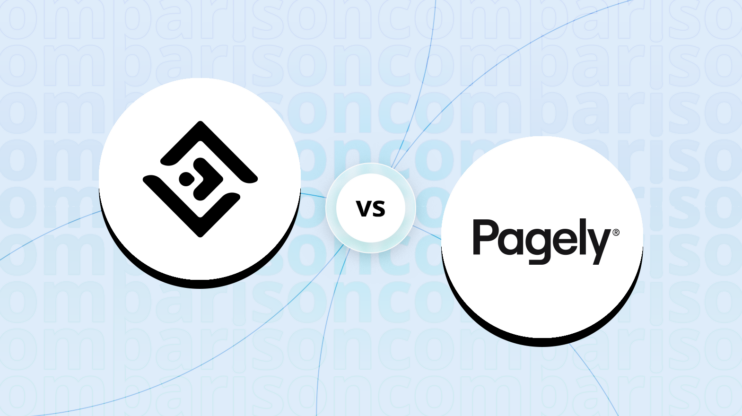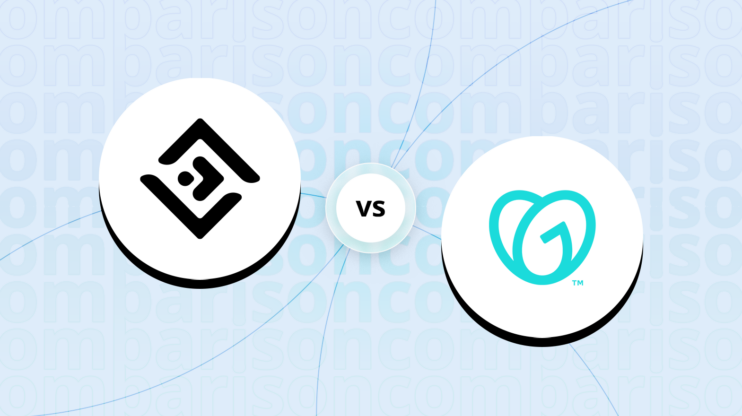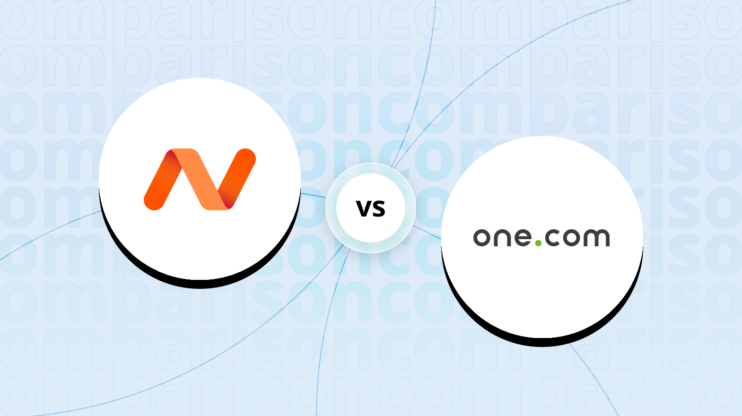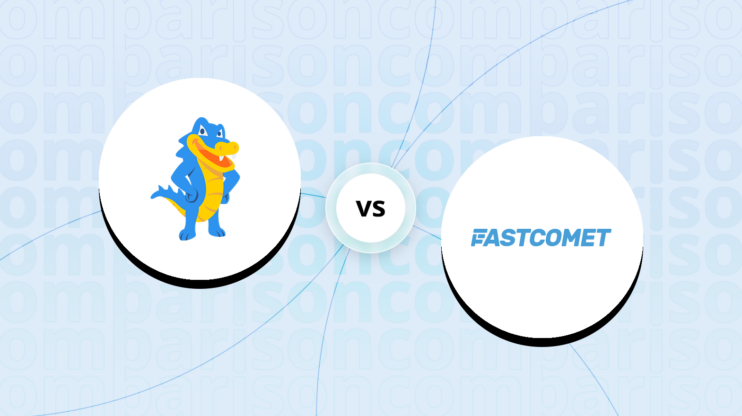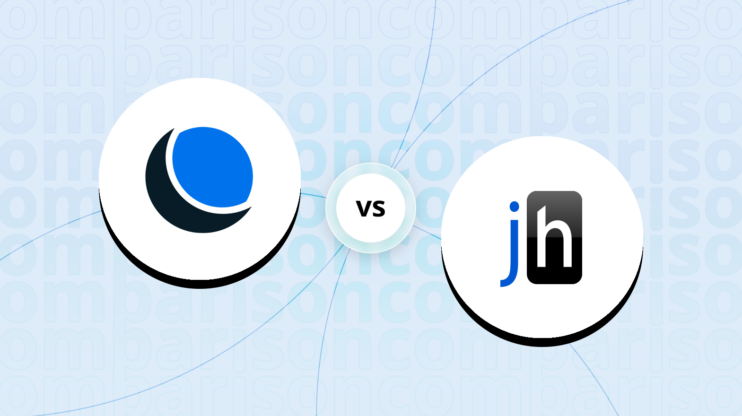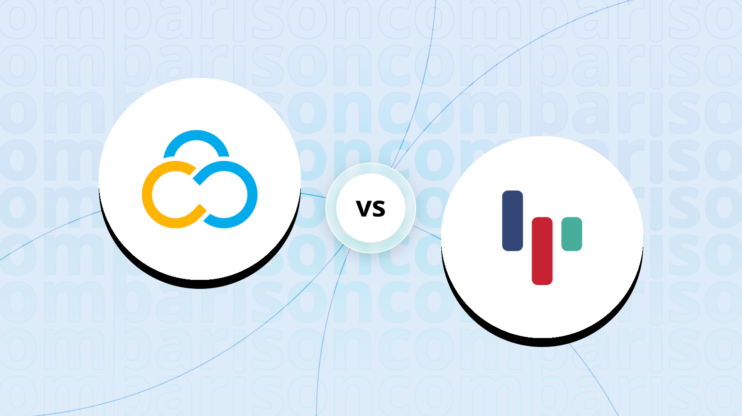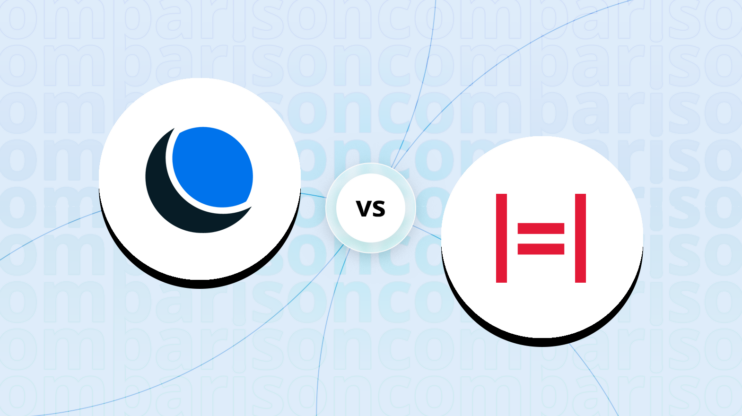Final verdict
Looking over GoDaddy vs. Pagely, both offer strong hosting services with unique strengths, but Pagely takes a slight edge in overall performance and features.
-
Pagely (Overall grade: 8.1)
focuses on high-performance managed WordPress hosting backed by Amazon AWS, offering advanced security, scalability, and user management. It’s a top choice for businesses with high traffic and demanding performance needs, supported by 24/7 expert technical support. The higher cost might be a barrier for smaller users, yet the quality justifies the expense for larger enterprises seeking reliability, speed, and robust security.
GoDaddy (Overall grade: 7.8)
provides a more affordable and user-friendly hosting option, ideal for beginners and small businesses. It offers comprehensive services including domain registration, email hosting, and a website builder. With various plan options, automated tools, and an easy-to-use cPanel, GoDaddy is well-suited for users prioritizing accessibility and cost-effectiveness over higher-end performance features. Though customer service reviews are mixed, its extensive resources and global data centers make it a competitive choice for many users.
 Overall grade:7.8 |
 Overall grade:8.1 |
|
|---|---|---|
| Uptime and Availability | 8.6 | 9.5 |
| Hosting Performance | 8.1 | 8.8 |
| Hosting Security | 8.6 | 9.2 |
| Price | 7.7 | 7.4 |
| Hosting Features | 7.1 | 4.6 |
| Ease Of Setup | 8.7 | 8.2 |
| User Management | 5.0 | 8.4 |
| Customer Support | 8.2 | 8.9 |
| User feedback | 3.9/5 | 4.9/5 |
Hosting types offered
Both platforms provide a variety of hosting types, each designed to meet the different needs of users.
 |
 |
|
|---|---|---|
| Shared hosting | ||
| Cloud hosting | ||
| WordPress hosting | ||
| Ecommerce hosting | ||
| VPS hosting | ||
| Dedicated hosting |
Although both offer a variety of hosting plans tailored to different needs, in certain cases, one platform may prove to be more suitable.
Detailed comparison
Uptime and availability
Evaluates the average uptime statistics, uptime guarantee and overall availability of the hosting
provider
Score Components:
- Uptime percentage (30%): evaluates the uptime statistics in given period of time
- Uptime guarantee (20%): Assesses if the platform offers an uptime guarantee and
whether the actual uptime matches the promised guarantee. - General performance (25%): Evaluates how fast is the average response time and overall
it’s stability. - Responsiveness (10%): Adaptability to different devices and screen sizes.
- Availability (25%): Reflects the total downtime and number of outages.
 8.6
8.6
 9.5
9.5
🏆 Winner Pagely: Superior uptime and advanced availability features.

GoDaddy provides a 99.9% uptime guarantee, yet in testing, it achieved a 99.98% uptime rate with only brief outages. The average server response time is 341ms, faster than the shared hosting average. However, there are frequent short downtimes, particularly with WordPress hosting. For compensation, GoDaddy offers a 5% credit, usable only for additional services.

Pagely guarantees an impressive 99.99% uptime, supported by its high availability architecture, multi-region redundancy, and disaster recovery features. The average response time is a rapid 211ms, and it manages up to 1,965 requests per second. With 24/7 monitoring and emergency fallback solutions, Pagely ensures continuous service and swift issue resolution, making it the reliable choice for critical hosting needs.
Hosting performance
Score Components:
- Hosting speed (30%): This includes SSD quality, Load times, PageSpeed score ranges,
additional information on website speed, built-in plugins for performance enhancement, available caching
methods, and CPU/RAM options - CDN (20%): Considers whether CDN is available or not, whether it’s free or paid, and
the quality of the CDN service - Available data centers (30%): Evaluates the number of data centers and their locations
globally. - Scalibility (20%): Looks at whether elastic scaling is available, the process required
to scale (manual upgrade vs. automatic scaling), the presence of dedicated servers, and the costs
associated with scaling.
 8.1
8.1
 8.8
8.8
🏆 Winner Pagely: Pagely offers a comprehensive managed WordPress hosting solution with advanced features that cater to high-performance needs.
When comparing the general performance of GoDaddy and Pagely, Pagely stands out with its high-end infrastructure and advanced support options. GoDaddy provides a solid hosting service with optimized servers and global data centers in North America, Europe, and Asia-Pacific. It offers various hosting plans including shared resources and dedicated resources for high-traffic sites. Additionally, GoDaddy features unmetered bandwidth, daily backups, and a 99.9% uptime guarantee. On the other hand, Pagely comes with a higher price tag but compensates with managed DevOps and support, advanced network security, and superior caching and CDN technology. Pagely’s hosting capabilities include flexible configurations, no cap on PHP workers, and decoupled database resources, making it a suitable choice for enterprises requiring robust scalability and reliability. For users needing high availability, Pagely offers options with load-balanced and synchronized nodes across multiple data centers.
Website Speed
When it comes to website speed, both GoDaddy and Pagely offer compelling advantages. GoDaddy supports faster page loads with its optimized servers and global data centers, ensuring a significant increase in server response times. Additionally, GoDaddy provides free SSL certificates, AutoSSL for automated certificate renewal, and NVMe SSDs which boost website performance. Pagely, with its high-performance setups tailoring up to 4 vCPU and 8 GB RAM, also ensures no cap on PHP workers enhancing the website loading speed further. The advanced caching and CDN technology incorporated by Pagely improve site responsiveness, providing a smoother user experience.
Scalability
In terms of scalability, both hosting services offer flexible options but cater to different types of users. GoDaddy provides standard web hosting plans that can be upgraded manually to handle more traffic or complex websites. For higher demands, users can move to VPS hosting with dedicated resources. These upgrades are reflected in the pricing tiers, starting from $8.99/mo for basic VPS and going up to $44.99/mo for higher configurations.
Pagely, however, takes scalability to a new level with its elastic scaling capabilities. Users can benefit from custom-configured plans offering a variable amount of vCPU and RAM. The pricing for scalability is higher, ranging from $375/mo for Performance Lite to custom pricing plans for enterprise needs. Pagely supports seamless scalability with load-balanced and synchronized nodes, ensuring maximum uptime and reliability.
Hosting security
and regulatory requirements
Score Components:
- Technical security measures (40%): This includes encryption, firewalls, DDoS
protection, secure configurations, server monitoring, access control and availability of security addons
(e.g Sitelock security). - Operational security measures (30%): Encompasses data privacy, backups and data
redundancy. - Compliance and certifications (20%): Adherence to legal and regulatory requirements
(e.g., GDPR, HIPAA) and possession of certifications (e.g., ISO 27001, SOC 2). - Business and reliability (10%): Factors in the provider’s reputation, uptime
guarantees, and customer support.
 8.6
8.6
 9.2
9.2
🏆 Winner Pagely: Superior security and compliance features make Pagely the top choice.
Both GoDaddy and Pagely have notable differences in their approaches to technical and operational security, as well as in their compliance with regulations.
Technical security measures:
GoDaddy offers robust auto-renewing SSL certificates through AutoSSL by Sectigo, while Pagely supports Let’s Encrypt and custom SSL certificates. GoDaddy utilizes a Web Application Firewall (WAF) and CloudLinux for optimized resource management, whereas Pagely leverages AWS Shield Standard for superior DDoS protection. Pagely provides customizable 2FA for additional security against brute force attacks. Both platforms offer real-time malware scanning and daily backups. Pagely’s resource isolation and dedicated server resources stand out compared to GoDaddy’s more generalized resource management approach.
Operational security measures:
GoDaddy boasts around-the-clock network security and DDoS protection, coupled with global data centers for faster page loads. Pagely’s 24/7 monitoring includes advanced threat neutralization and incident response with comprehensive support. Both providers offer daily backups, but Pagely excels with additional features like anti-spam filtering and thorough vulnerability patching. GoDaddy relies on CloudLinux and Cage FS for server stability, while Pagely’s PressARMOR™ fortified plugin management reduces vulnerability risks in WordPress environments.
Compliance and certifications:
GoDaddy adheres to GDPR and PCI compliance by integrating PCI-certified products and ensuring GDPR data management policies. Pagely matches these compliance standards while offering SOC 2 Type I & II certifications and maintaining GDPR compliance with European data centers. GoDaddy provides PCI compliance for e-commerce, but Pagely extends its compliance features with SOC 2 and extensive vulnerability patching.
 |
 |
|
|---|---|---|
SSL certificate |
AutoSSL, Managed, Self-Managed |
Let’s Encrypt, Custom SSL |
Additional security features |
WAF, Malware Scanning, CloudLinux |
Anti-Spam, Customizable 2FA |
PHP versions |
Latest PHP versions (7.4, 8.0) |
Long-term PHP support (7.4+) |
GDPR compliance |
Yes |
Yes |
HIPAA compliance |
Not specified |
Not specified |
PCI compliance |
Yes |
Yes |
Hosting features
Score Components:
- Domains (20%): Assesses the availability of a free domain, domain purchase options, and
pricing - Email (15%): Considers if the provider offers full email hosting, or is reselling
third-party service, and if the email is only transactional or not - Website builder (15%): Checks if website builder is available, and it’s user
friendliness and overall the level of customization allowed. - Staging environment (20%): Determines if a staging environment is available, allowing
for testing changes before going live. - FTP & SFTP accounts (10%): Evaluates if and how easily users can access FTP and
SFTP accounts - Git and SSH access (20%): Assess whether Git is integrated into the hosting service and
if SSH access is provided
 7.1
7.1
 4.6
4.6
🏆 Winner
GoDaddy: A feature-rich hosting solution with extensive offerings for different user needs.
GoDaddy and Pagely both provide robust hosting services, but their offerings cater to distinctly different audiences. GoDaddy stands out with its user-friendly website builder, making it ideal for beginners or small businesses needing a simple solution. It’s packed with helpful features like a free domain for the first year, free email, and automated SSL certificates. GoDaddy’s plans offer varying levels of performance to fit different website needs, from basic personal sites to larger professional ones. The inclusion of tools like the AI creation tool and automated malware scans add extra value, making GoDaddy a comprehensive choice for many.
Pagely, meanwhile, targets a more professional audience with its high-performance features powered by Amazon AWS. Its offerings focus on reliability and speed, highlighted by a strict 99.99% uptime SLA. Pagely’s robust security measures and responsive support team cater to larger businesses with high traffic and demanding security needs. The flexible configurations and developer-friendly tools—such as SSH, GIT, and WP-CLI—serve advanced users well. While Pagely’s attention to performance and security are notable, its higher price points and more complex setup may make it less accessible for beginners.
 |
 |
|
|---|---|---|
Free domain |
Yes, for the first year |
No |
Free SSL |
Yes, for the first year |
Yes |
Email hosting |
Yes |
No |
Website builder |
Yes |
No |
Staging environment |
Yes, in specific plans |
Yes |
FTP & SFTP accounts |
Yes |
Yes |
Git and SSH access |
No |
Yes |
Free backup |
Yes |
Yes |
Money-back guarantee |
Yes |
No |
a location.
As a result in rare cases the features mentioned here can differ from the ones you see on their websites.
Both providers support a range of users from beginners to experts with user-friendly website builders and WordPress staging areas. However, in terms of developer tools, both GoDaddy and Pagely offer robust options including SSH access, support for multiple programming languages, and Git for version control, thus appealing to developers looking for advanced capabilities.
Email services:
GoDaddy offers robust email hosting services, allowing users to easily set up and manage their email campaigns, which is ideal for small to medium-sized businesses. It includes a free email option in many of its plans and supports transactional emails, ensuring smooth communication channels. Pagely, on the other hand, does not provide email hosting services directly but focuses more on third-party integrations for email solutions, supporting transactional email capabilities primarily through integration with other services. This flexible approach caters to businesses that require more customized email solutions but adds complexity for users who prefer an all-in-one solution.
Price
Score Components:
- Plan value (40%): What each pricing tier offers.
- Transparency and clarity (30%): Clearness of pricing structures.
- Flexibility of plans (20%): Range of options to suit different budgets.
- Hidden costs (10%): Additional expenses not included in the plan.
 7.7
7.7
 7.4
7.4
🏆 Winner GoDaddy Web Hosting: A wide selection of diversified hosting plans encompassing features and cost-effective solutions for multiple needs.
Evaluating the pricing of plans among various hosting providers can be complex due to their differing pricing and renewal strategies. Additionally, certain plans require annual commitments, which adds to the difficulty of making comparisons. The prices listed are based on monthly commitments; plans requiring annual commitments are indicated. Additionally, although some providers offer identical plans for WordPress and shared hosting, we have created separate tables for each to enhance clarity.
When comparing GoDaddy and Pagely, GoDaddy provides a more customer-friendly range of plans. For example, GoDaddy’s web hosting and WordPress plans offer a variety of price points starting from $5.99/mo with numerous inclusive features such as free domains and SSL certificates. In contrast, Pagely’s hosting solutions are notably more costly, starting from $199/mo. Although Pagely delivers robust (do not use this word) technical support and security features essential for high-traffic sites, GoDaddy stands out with its more affordable options across different hosting categories, facilitating entry for a wider audience.
 |
 |
|---|---|
|
Managed WordPress Basic $12.99
1 website, 10 GB NVMe storage, Free domain, Free SSL, Weekly backups, Firewall, Automated malware scans & removal Value for price:8.0
|
Developer 1 $199/mo
2 vCPU (Burstable), 2 GB Ram, 30 GB SSD storage, managed DevOps and support Value for price:6.5
|
|
Managed WordPress Deluxe $13.99
1 website, 20 GB NVMe storage, Free domain, Free SSL, Daily backups, Firewall, CDN, Staging site Value for price:8.5
|
Developer 2 $299/mo
2 vCPU (Burstable), 4 GB RAM, 30 GB SSD storage, managed DevOps and support Value for price:6.5
|
|
Managed WordPress Ultimate $15.99
1 website, 30 GB NVMe storage, Free domain, Free SSL, Daily + on-demand backups, Firewall, CDN, SEO optimizer, WooCommerce Value for price:8.7
|
N/A
Value for price:N/A
|
 |
 |
|---|---|
|
Web Hosting Economy $5.99
1 website, 25 GB NVMe storage, Free domain, Free email, Free SSL, 30-day money-back guarantee Value for price:8.0
|
N/A
Value for price:N/A
|
|
Web Hosting Deluxe $7.99
10 websites, 50 GB NVMe storage, Free domain, Free email, Free SSL, 30-day money-back guarantee Value for price:8.5
|
N/A
Value for price:N/A
|
|
Web Hosting Ultimate $12.99
25 websites, 75 GB NVMe storage, Free domain, Free email, Free SSL, 30-day money-back guarantee Value for price:9.0
|
N/A
Value for price:N/A
|
|
Web Hosting Maximum $17.99
50 websites, 100 GB NVMe storage, Free domain, Free email, Free SSL, 30-day money-back guarantee Value for price:9.2
|
N/A
Value for price:N/A
|
 |
 |
|---|---|
|
1 vCPU / 2GB RAM $8.99
40 GB NVMe SSD storage, Snapshot backups, cPanel/Plesk, Global data centers Value for price:7.5
|
Performance Lite $375/mo
2 vCPU, 4 GB RAM, 50 GB SSD storage, managed DevOps and support Value for price:6.5
|
|
2 vCPU / 4GB RAM $17.99
100 GB NVMe SSD storage, Snapshot backups, cPanel/Plesk, Global data centers Value for price:7.8
|
Performance $499/mo
2 vCPU, 4 GB RAM, 50 GB SSD storage, managed DevOps and support Value for price:6.7
|
|
4 vCPU / 8GB RAM $34.99
200 GB NVMe SSD storage, Snapshot backups, cPanel/Plesk, Global data centers Value for price:8.0
|
Performance+ $999/mo
4 vCPU, 8 GB RAM, 50 GB SSD storage, managed DevOps and support Value for price:6.8
|
|
4 vCPU / 16GB RAM $44.99
200 GB NVMe SSD storage, Snapshot backups, cPanel/Plesk, Global data centers Value for price:8.3
|
Scale $2500/mo
Custom CPU, Custom RAM, Custom SSD storage, managed DevOps and support Value for price:7.0
|
Enterprise plans
GoDaddy’s plans cater to enterprises needing affordable and scalable shared or VPS hosting solutions, offering extensive options under $50/mo. On the other hand, Pagely targets higher-end clients with more demanding needs, providing dedicated resources and specialized support starting from $199/mo. Pagely’s enterprise-level features include multi-region redundancy and enhanced SLAs, making it ideal for businesses requiring top-tier performance and reliability.
Ease of setup
platform.
Score Components:
- Site migration (25%): Assesses whether the provider offers tools for site migration,
either automated or manual, and whether these services are free or require a fee. - Admin panel usability (35%): Evaluates the type of admin panel provided, such as the
standard cPanel or a custom solution, focusing on its accessibility and user-friendliness for both
technical and non-technical users. - Setup features (20%): Examines the availability and ease of use of various setup
features, including FTP accounts, file managers, email account setup, PHPMyAdmin, and easy CDN
configuration. - Help center quality (20%): Measures the quality and accessibility of the provider’s
help center resources, including articles and tutorials.
 8.7
8.7
 8.2
8.2
🏆 Winner
GoDaddy: Offers a simpler setup process and more comprehensive migration tools.
GoDaddy provides an industry-standard cPanel, making it highly accessible and user-friendly for both technical and non-technical users. This standardization means fewer hurdles for those familiar with web hosting. In contrast, Pagely focuses on a highly specialized managed WordPress solution, which includes a custom admin interface. While Pagely’s panel may offer advanced features, it may require a learning curve for those not specifically well-versed in managed WordPress hosting.
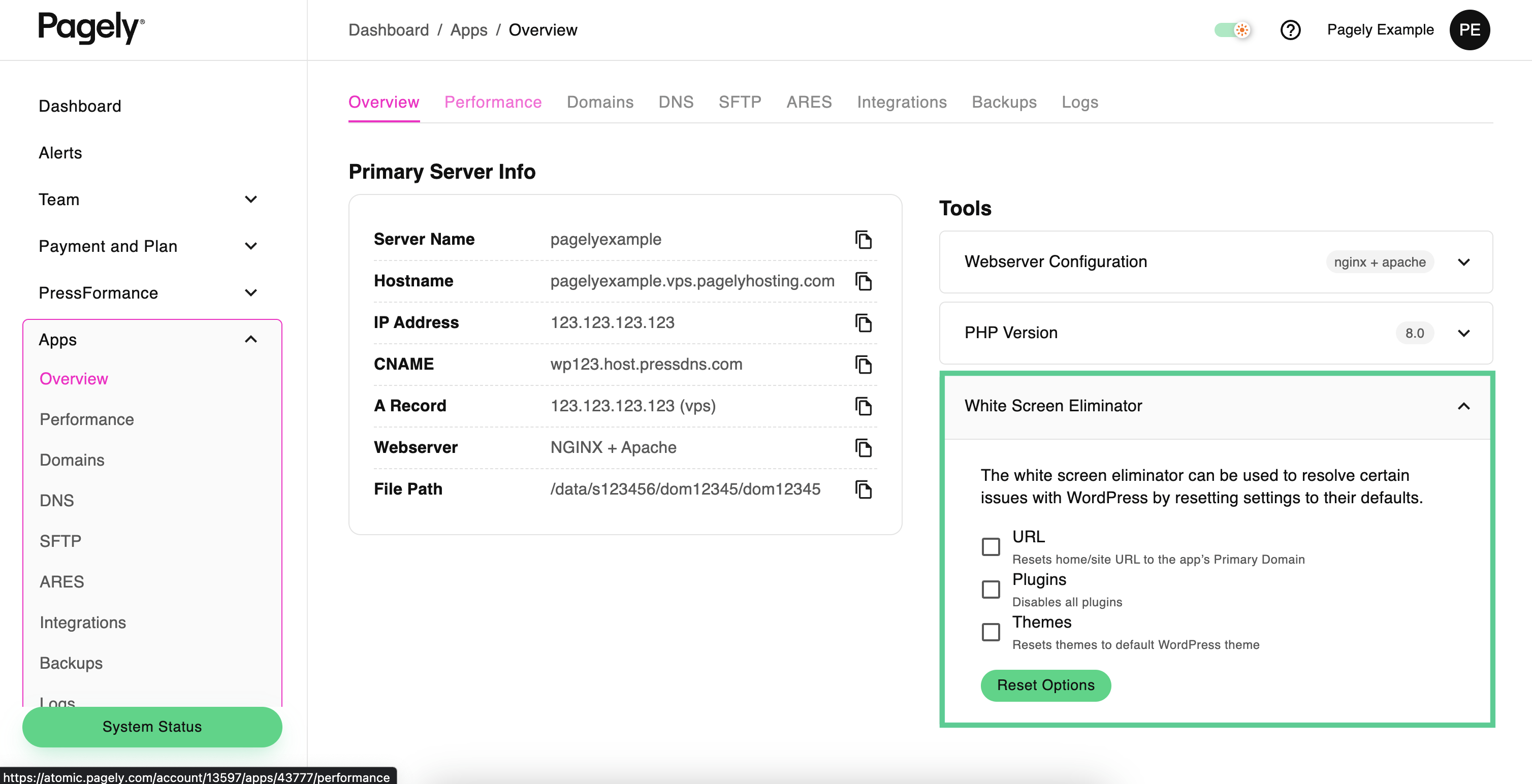
The cPanel provided by GoDaddy simplifies various server management tasks such as backups, security, and app installations with just a few clicks. It is designed to be intuitive, offering an easier entry point for beginners but also advanced enough for tech-savvy users. Pagely, being a managed WordPress host, caters more to WordPress-specific needs. Their custom admin panel excels in providing a highly optimized environment for WordPress, but it may not be as versatile or as familiar as cPanel for broader server management tasks.
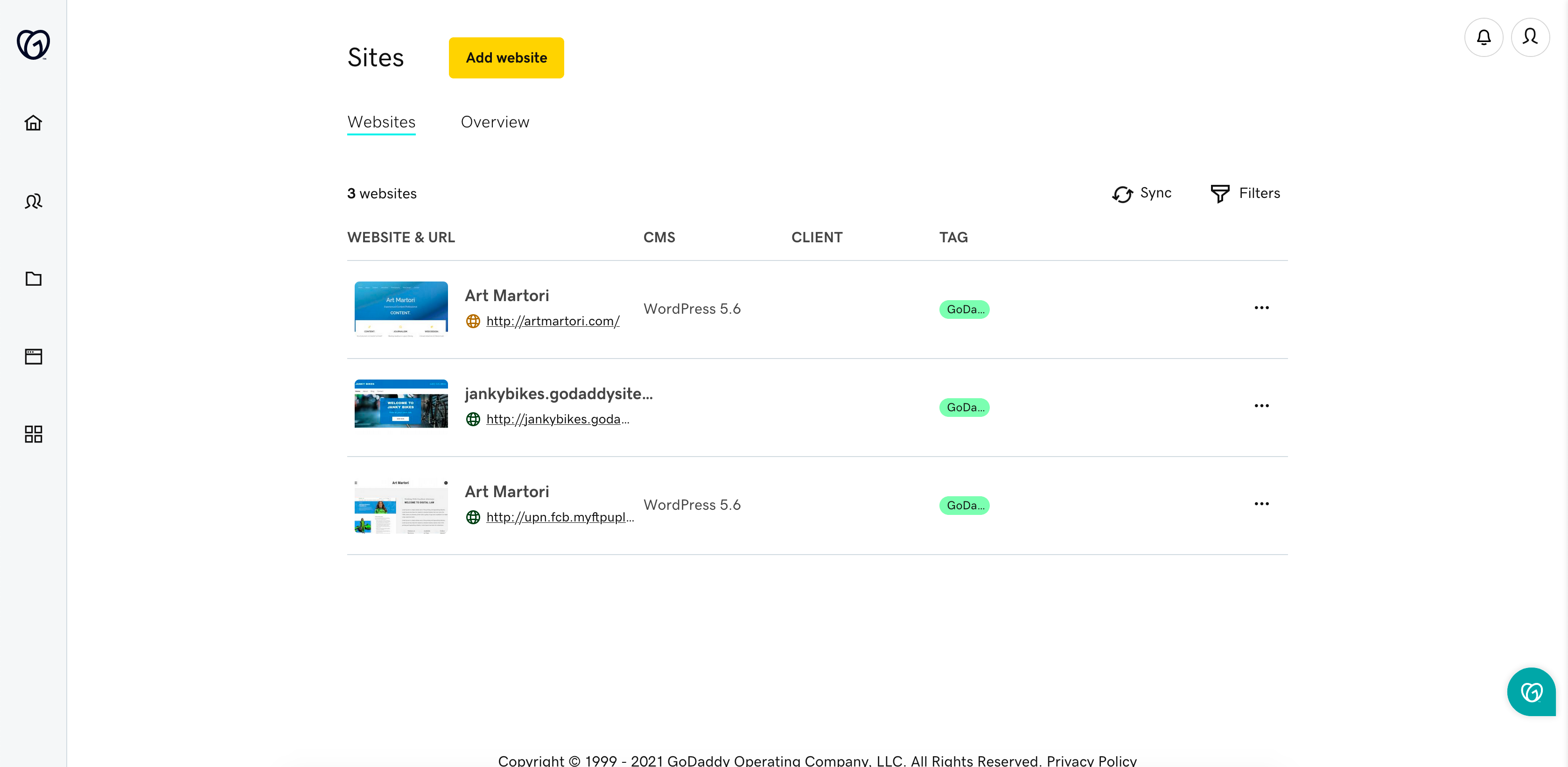
GoDaddy offers a free, automated WordPress migration tool that allows users to easily transition their sites without incurring additional costs. This tool is beneficial for users who may not have extensive technical expertise but still need efficient migration solutions. Pagely, on the other hand, provides support for site migrations through their ticket and chat systems, but the process may take longer and isn’t as automated as GoDaddy’s solution. Pagely’s migration services are designed to handle complex WordPress site migrations but may require more effort and interaction with their support team.
GoDaddy’s help center includes a comprehensive Web Hosting FAQ, a variety of help articles, and 24/7 customer support via phone and chat. These resources ensure that users can find the assistance they need at any time. Pagely also offers an extensive knowledge base with articles ranging from WordPress basics to advanced maintenance and scaling, along with a blog for ongoing updates. Though Pagely’s resources are detailed and cater specifically to WordPress, their availability through tickets and chat may not be as immediately accessible as GoDaddy’s 24/7 support options.
The platforms provide extensive knowledge bases filled with guides, how-to articles, and instructional content. GoDaddy offers a wide range of resources alongside 24/7 chat and phone support. Pagely also boasts a detailed help center with an intuitive search function and around-the-clock support via live chat, phone, and ticketing, ensuring comprehensive user support.
User management
accessibility.
Score Components:
- Role customization (40%): Flexibility in creating and defining user roles and
permissions. - Ease of management (30%): User interface and tools for managing users.
- Access control (20%): Effectiveness of access control measures for different user
levels. - Scalability (10%): Ability to manage a growing number of users efficiently.
 5.0
5.0
 8.4
8.4
🏆 Winner: Pagely: Exceptional user management features and detailed roles and permissions.
When comparing GoDaddy and Pagely in terms of managing user roles, permissions, and accessibility, Pagely stands out with its extensive and clearly defined roles. Pagely offers a comprehensive suite of roles including Account Owner, Super-Admin, Sub-Admin, Tech, Billing, App-Only, and App-Only-Minimal. Each role carries distinct permissions and responsibilities, allowing for precise control over what each user can access and manage. On the other hand, GoDaddy lacks specific information about user management in the provided context, which limits our ability to assess their capabilities accurately.
Pagely provides a sophisticated user interface and a suite of tools for user management. The platform’s interface is intuitively designed, making it straightforward for users to navigate through different roles and permissions. Admins can easily assign roles, manage user settings, and configure security measures such as two-factor authentication. The interface for managing users is detailed yet user-friendly, ensuring administrators can perform tasks efficiently. Without detailed information on GoDaddy’s user management interface, it’s challenging to draw a direct comparison, but Pagely’s specified tools and ease of use are impressive.
Effectiveness in access control measures is where Pagely shines. With its multilayered user roles, Pagely ensures that the right level of access is granted to each type of user, minimizing potential security risks. The platform’s ability to mandate two-factor authentication and manage SSH/SFTP keys further enhances security. Pagely’s structure is designed to support a growing number of users seamlessly. In contrast, GoDaddy’s effectiveness in managing access control and scalability cannot be fully assessed due to the lack of detailed information provided.
Pagely User Roles Table:
| Role | Description | Access highlights |
|---|---|---|
| Account Owner | Full management capabilities. | Manage account, create users, manage billing/tech users, enforce security measures. |
| Super-Admin | Near full access just under Account Owner. | Manage account, users, security measures, and servers. |
| Sub-Admin | Moderate administrative privileges. | Manage sites, users, security, backups, aliases. |
| Tech | Technical management. | Manage sites, personal security keys, backups, aliases. |
| Billing | Focused on billing-related tasks. | Manage personal security keys, backups, aliases. |
| App-Only | Limited to application-specific tasks. | Manage personal security keys, backups, aliases. |
| App-Only-Minimal | Minimal access for app-specific management. | Manage personal security keys, backups, aliases. |
Customer support
hosting provider.
Score Components:
- Support communication channels (30%): Measures the variety of customer support types
provided (live chat, chatbot, email, phone, etc.) - Availability (20%): Assesses the availability hours for each channel, including 24/7
support options. - Technical support quality (30%): Assesses whether the provider offers comprehensive
technical support, including hardware upgrades (e.g., HDD to SSD), software installations, and web
server configuration changes. - Enterprise support (20%): Checks if there are dedicated or priority support services
for enterprise-level customers.
 8.2
8.2
 8.9
8.9
🏆 Winner
Pagely: An excellent choice for those seeking a greater focus on customer satisfaction with fast, responsive support.
 |
 |
|
|---|---|---|
Phone support |
||
Live chat support |
||
Chatbot |
||
Email/ticket support |
||
Enterprise support (dedicated agent, priority support) |
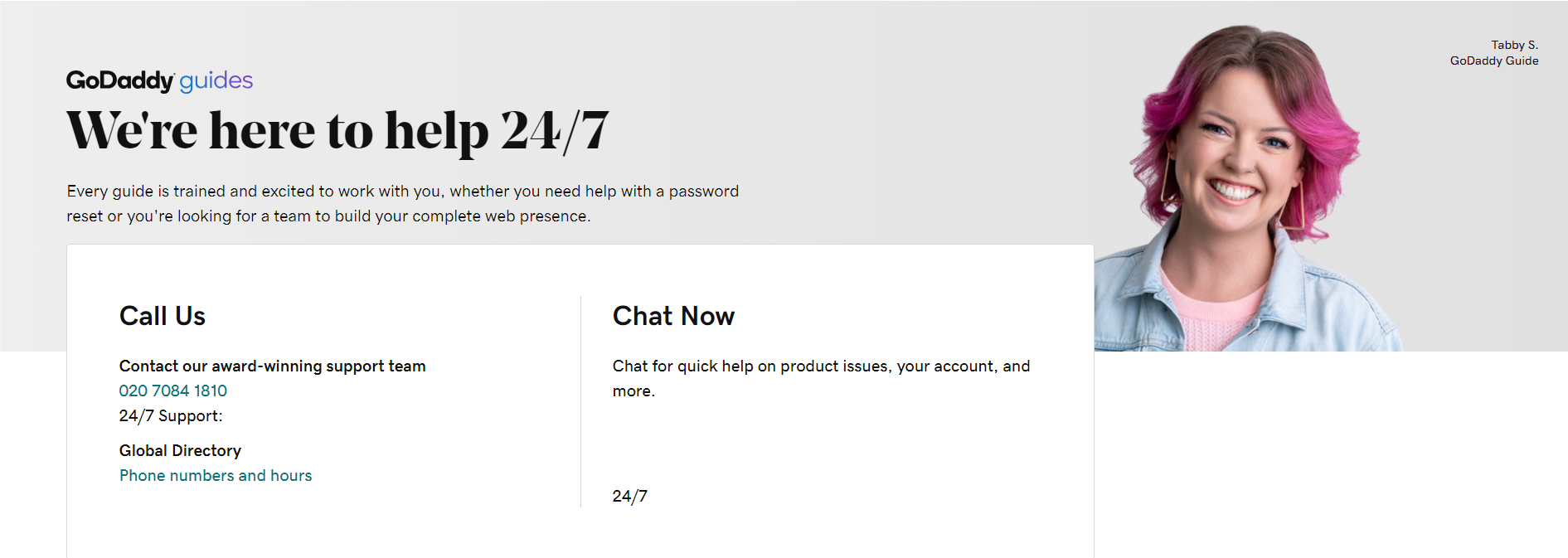
GoDaddy offers comprehensive support through various channels, including 24/7 phone and email support, and a vast knowledgebase. They also provide free WordPress migration tools and daily backups as part of their customer service. Their live chat is limited to the United States subdomain. Global data centers and a 30-day money-back guarantee are additional benefits.
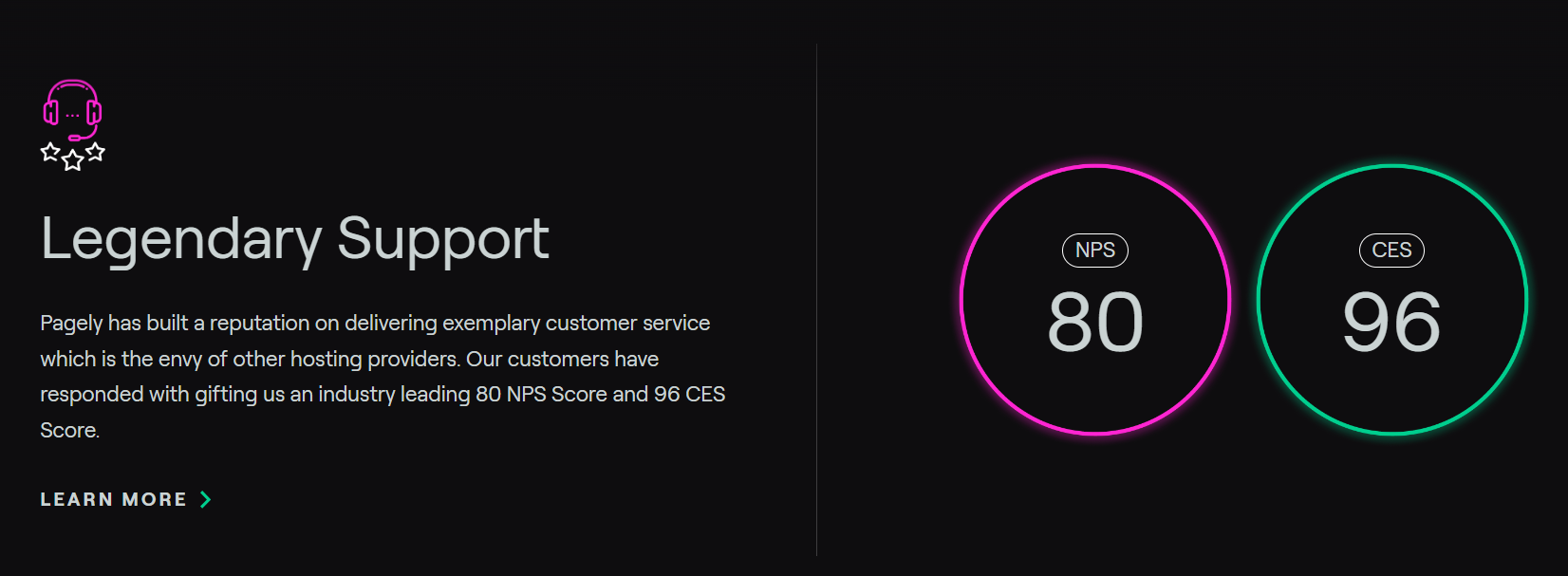
Pagely also provides 24/7 support via tickets and live chat. They ensure quick resolutions with 81% of cases solved within two hours and have a high customer satisfaction rate. Pagely’s tierless support means every team member is equipped to handle issues directly. Select plans include phone support and dedicated onboarding agents, making them a strong choice for businesses demanding dedicated attention and quick, efficient problem resolution.
User feedback
GoDaddy generally receives praise for its ease of use, affordability, comprehensive service offerings, and user-friendly interface, making it a popular choice for domain registration and basic web hosting. Many users appreciate the ability to purchase domains, web hosting, email services, and other digital products all in one place, along with frequent discounts for new customers. However, customer service experiences are inconsistent; while some users find it helpful and responsive, others report long wait times and unknowledgeable support staff. Additionally, recurring issues include high renewal costs, persistent upselling, and occasional technical difficulties.
Overall, Pagely receives high praise from its users for its reliable and efficient WordPress hosting services. Reviewers particularly commend the exceptional and responsive customer support, likening it to having an on-call DevOps team. While the service is considered expensive compared to other hosting providers, users generally agree that the quality and peace of mind it offers are well worth the cost. Minor criticisms include the premium pricing and occasional interface bugs, but these are overshadowed by the consistently positive experiences with uptime, security, and problem resolution.
FAQ
Which platform is better suited for hosting WordPress websites?
Both GoDaddy and Pagely offer managed WordPress hosting with features like automatic backups, SSL certificates, and advanced security measures. Pagely focuses more on high-performance managed WordPress hosting backed by Amazon AWS, making it ideal for larger businesses with high traffic and performance needs. GoDaddy, while also providing managed WordPress hosting, is more affordable and user-friendly, suitable for beginners and smaller businesses.
Which hosting service offers better security features?
Pagely provides superior security features, leveraging AWS Shield Standard for DDoS protection and customizable two-factor authentication for enhanced security. It also offers resource isolation and dedicated server resources, which are beneficial for high-security needs. GoDaddy, though offering robust security features like auto-renewing SSL certificates and a Web Application Firewall, doesn’t quite match Pagely’s advanced security measures.
What are the major differences in pricing and value between godaddy and pagely?
GoDaddy offers a wide range of affordable hosting plans starting from as low as $5.99/mo for shared hosting, making it accessible to a broader audience. Pagely’s plans, however, start at $199/mo, reflecting its focus on high-performance and enterprise-level services. While Pagely justifies its higher cost with superior infrastructure, security, and support, GoDaddy is more cost-effective for users with less demanding requirements.
Which hosting service offers more scalability options for growing websites?
Both hosting services provide scalable options, but Pagely excels with its elastic scaling capabilities, offering custom-configured plans with variable vCPU and RAM allocations. Pagely supports maximum uptime and reliability through load-balanced and synchronized nodes. GoDaddy also offers scalable plans, but typically requires manual upgrades from shared to VPS hosting, which may not be as seamless as Pagely’s solutions.
Which service is more suitable for hosting a high-traffic website?
Pagely is more suitable for hosting high-traffic websites due to its high-performance managed WordPress hosting backed by Amazon AWS and features like scalable performance with decoupled database resources. Its high availability architecture with multi-region redundancy and load balancing ensures exceptional performance and reliability. While GoDaddy offers competitive plans with unmetered bandwidth, it may not match Pagely’s robust capabilities for handling very high traffic.
The making of this blog
We followed a clear, step-by-step process to write and research this article.









